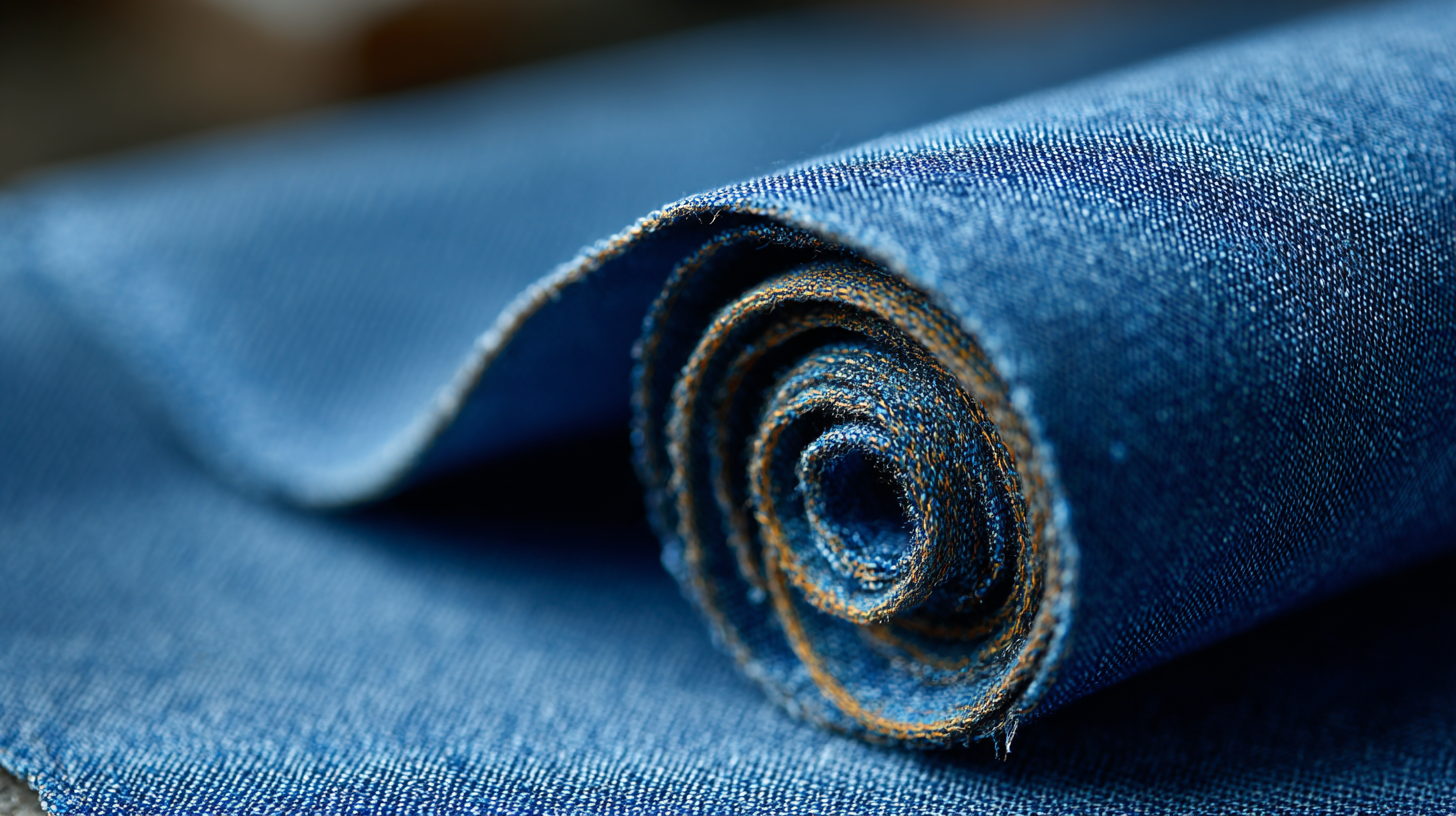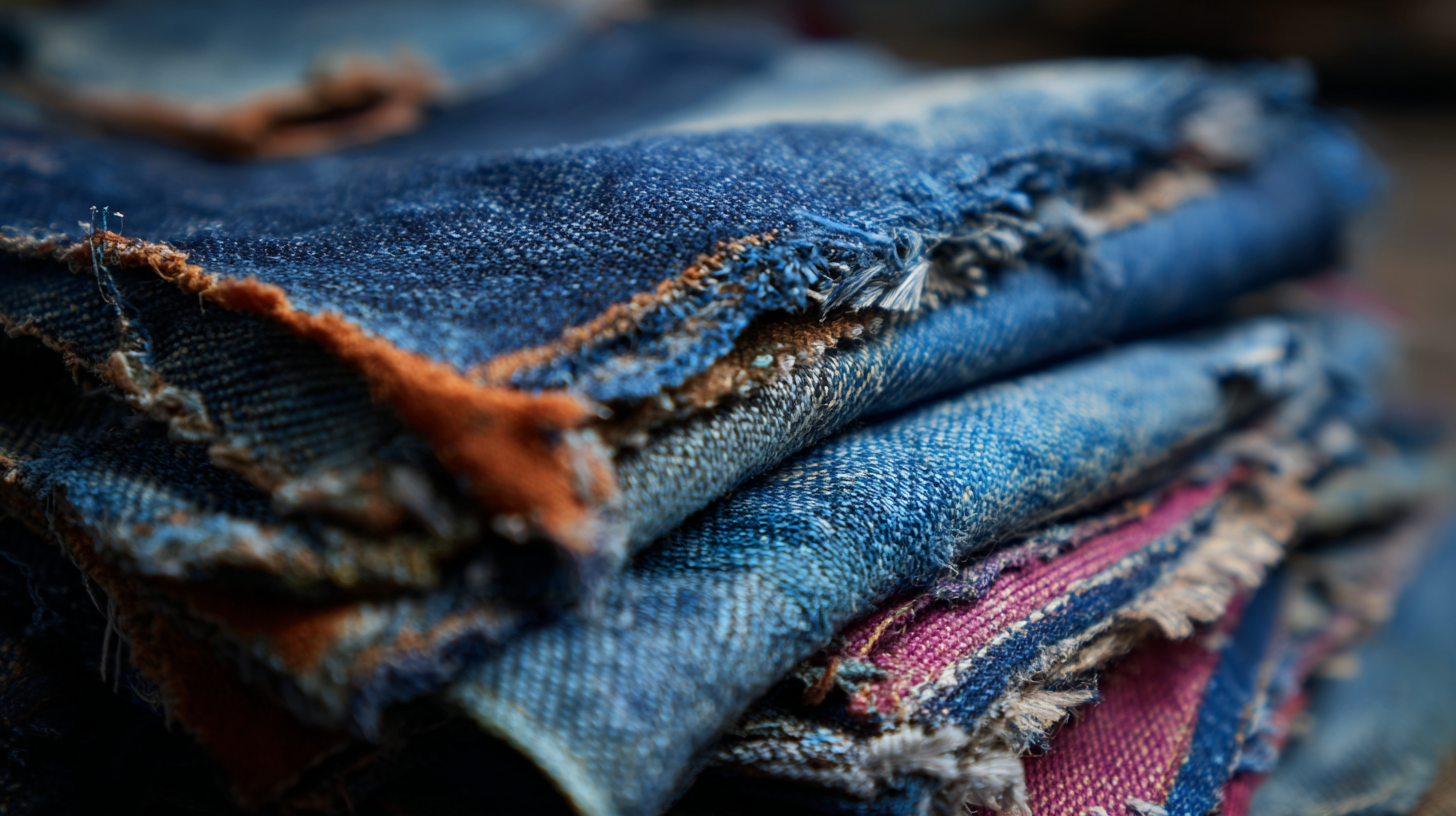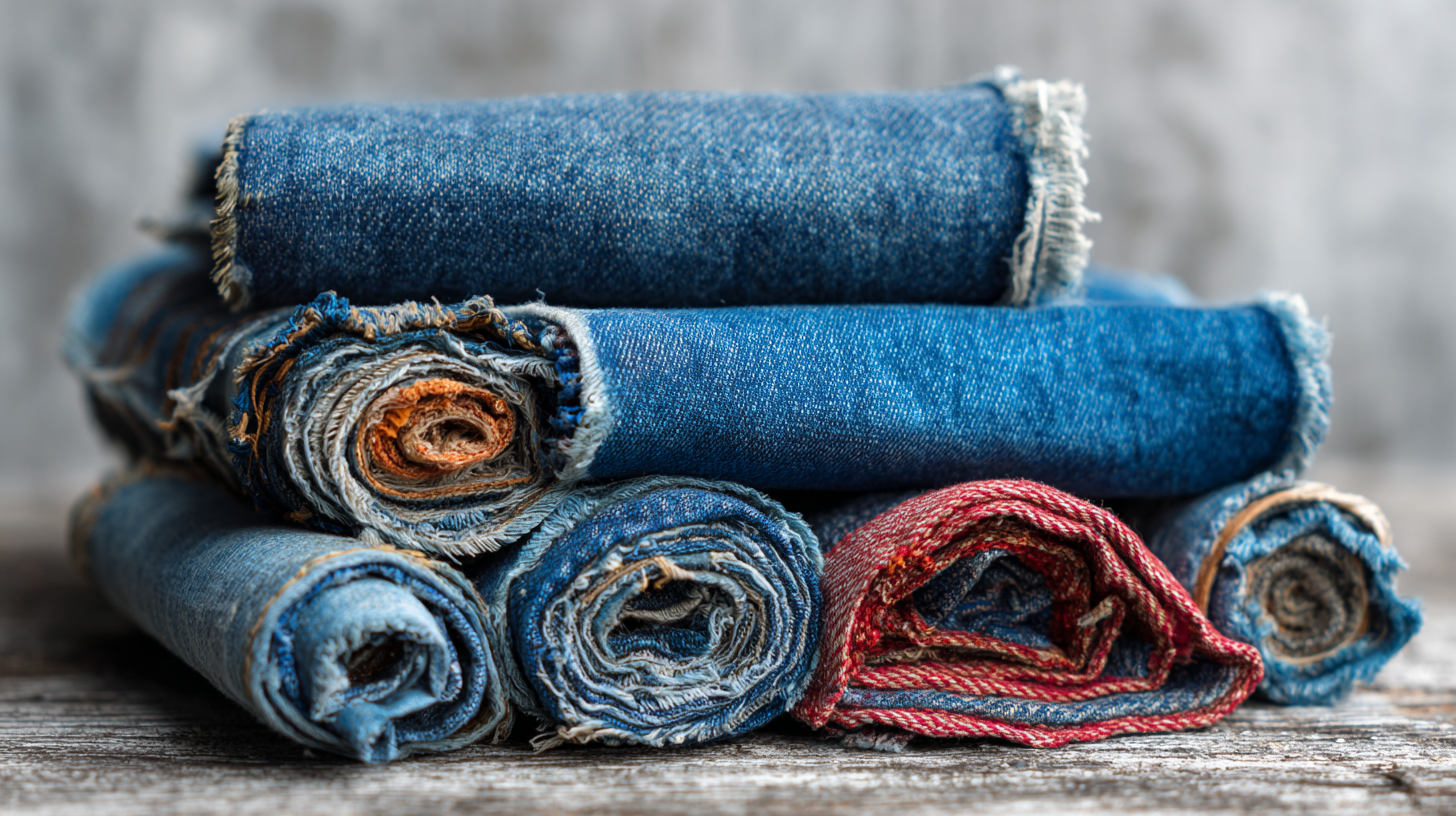The fashion industry is increasingly recognizing the importance of sustainability, with the global market for eco-friendly apparel projected to reach $8.25 billion by 2025, according to a report by Grand View Research. As brands and consumers alike push for greener alternatives, "Recycled Denim Fabric" has emerged as a leading solution to mitigate the environmental impact of traditional denim production, which can consume up to 2,500 liters of water for just one pair of jeans. By utilizing post-consumer waste, such as discarded jeans, recycled denim not only reduces landfill waste but also decreases water usage and energy consumption significantly.

This blog will explore innovative alternatives in recycled denim fabric, delving into the latest advancements and practical tips for both consumers and manufacturers seeking to embrace sustainable fashion practices.
The global market for recycled denim fabric is witnessing an impressive rise, driven by a growing consumer demand for sustainable fashion options. As environmental concerns take center stage, brands are leaning towards innovative alternatives that not only reduce waste but also minimize the carbon footprint associated with traditional denim production. The recycling process transforms pre-consumer and post-consumer denim waste into new fabric, creating a circular economy that extends the life cycle of denim products. As a result, established brands and new players alike are increasingly investing in recycled denim technologies, leading to a surge in availability and variety.
Market projections indicate a steady growth trajectory for recycled denim over the next several years. Enhanced awareness of environmental issues, coupled with regulatory pressures on textile waste, is propelling this sector forward. Retailers are responding by integrating recycled denim into their offerings, often combining it with other sustainable materials to create stylish, eco-friendly apparel. Consumers are becoming more conscious buyers, favoring brands that prioritize sustainability, which further fuels this positive trend. As fashion evolves, the integration of recycled denim is not only a testament to innovation but also a critical step towards a more sustainable future in the fashion industry.
This chart illustrates the growth projections of the recycled denim market from 2020 to 2025, showcasing the increasing demand for sustainable fashion alternatives.
The journey of creating recycled denim begins at the fiber level, where innovative techniques are being utilized to transform post-consumer waste into reusable materials. By employing methods like chemical recycling, brands can break down worn-out denim and regenerate high-quality fibers. This approach not only minimizes garment waste but also reduces the demand for virgin cotton, which requires significant water and pesticides to produce.
Tips for consumers looking to support sustainable denim practices include opting for brands that prioritize recycled materials in their collections and participating in local recycling programs. Choosing second-hand denim not only extends the life of these garments but also encourages a circular economy.
Furthermore, advancements such as enzyme technology are making production more efficient by streamlining the process of turning old denim into new fabric. These innovations lessen the environmental impact associated with traditional denim manufacturing, making way for a more sustainable fashion industry. To foster these practices, shoppers should advocate for transparency in sourcing and support businesses that implement these groundbreaking techniques.

The fashion industry has long been criticized for its significant environmental footprint, particularly in water and energy usage. Traditional denim production is notoriously water-intensive, often requiring thousands of liters for a single pair of jeans. However, the emergence of recycled denim fabric offers a promising solution to mitigate this impact. By utilizing post-consumer waste and discarded textiles, recycled denim drastically reduces the need for virgin cotton, thereby conserving precious water resources and minimizing energy consumption during production.

The sustainable fashion movement has gained substantial momentum, with a particular focus on recycled denim. Leading brands are now pioneering innovative alternatives that ultimately reduce environmental impact. According to a report by the Ellen MacArthur Foundation, the global fashion industry accounts for over 92 million tons of waste annually, with denim representing a significant portion of this figure. In response, companies like Levi's and G-Star RAW have embraced recycled denim, incorporating post-consumer waste into their fabric production processes. Levi’s renowned WellThread collection utilizes up to 64% recycled materials, showcasing how leading brands prioritize sustainability without compromising style.
Emerging players in the sustainable denim sector, such as AG Jeans and Outerknown, are also making waves. AG Jeans' eco-friendly production methods reduce water usage by up to 90%, according to their sustainability report. Outerknown, founded by surfer Kelly Slater, utilizes a supply chain that emphasizes transparency and ethical practices, effectively aligning with the increasing consumer demand for responsible fashion. As reported by McKinsey, 66% of consumers are willing to pay more for sustainable brands, highlighting the growing market for recycled denim. These brands not only lead the charge in sustainable fashion but also set an example for the industry, proving that innovation and responsibility can coexist beautifully.
Recent industry surveys indicate a growing consumer interest in recycled denim, which reflects a significant shift in attitudes towards sustainable fashion. According to a report by Textile Exchange, over 70% of consumers are now willing to pay a premium for sustainably produced products, with denim being one of the most popular categories. This trend underscores the importance of transparency and ecological responsibility in the apparel industry as brands increasingly adopt recycled materials into their product lines.
Additionally, the Global Fashion Agenda found that 44% of consumers actively seek out sustainable fashion options, with denim being a key focus. This is particularly encouraging for brands that are innovating in the recycled denim segment. Notably, LCA (Life Cycle Assessment) studies demonstrate that using recycled cotton can reduce water consumption by up to 98%, further attracting environmentally conscious shoppers. As the demand for sustainable alternatives rises, consumers are not only supporting brands that prioritize eco-friendly practices but are also reshaping the future of denim production altogether.
| Survey Dimension | Response (%) | Sample Size |
|---|---|---|
| Awareness of recycled denim | 68% | 1000 |
| Willingness to pay more | 55% | 950 |
| Preference for sustainable brands | 72% | 850 |
| Perceived quality of recycled denim | 60% | 900 |
| Impact on purchasing decisions | 65% | 800 |
| Familiarity with brands using recycled denim | 49% | 950 |
